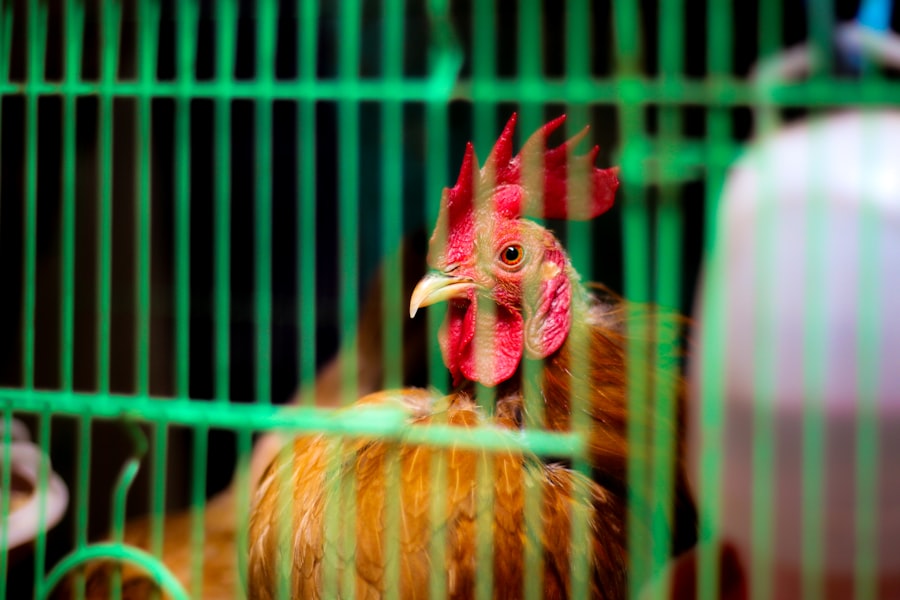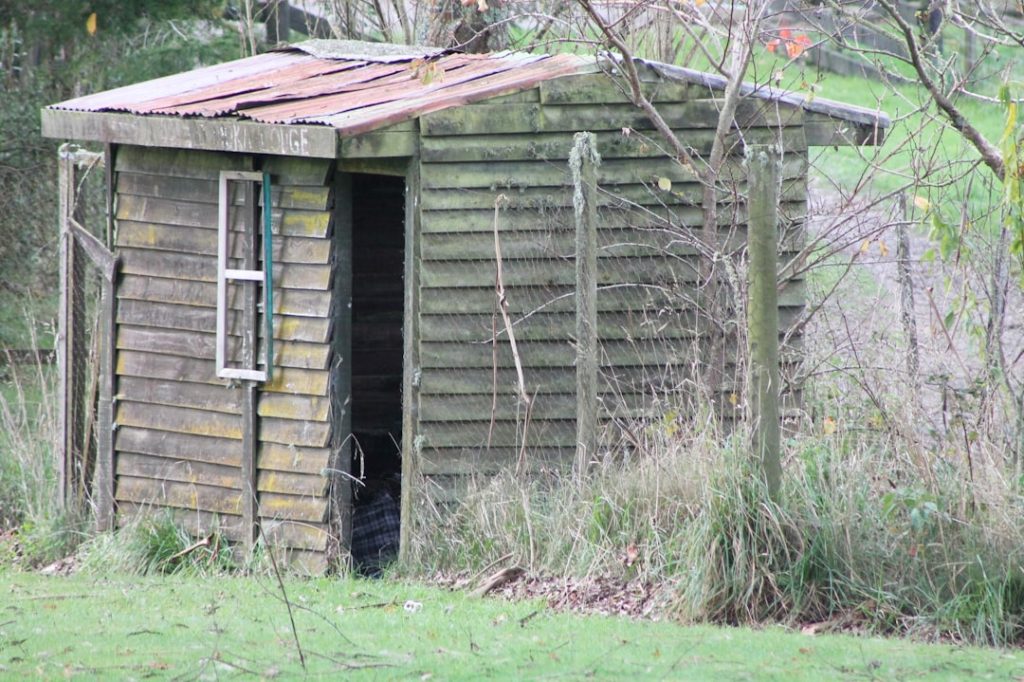Graveyard keeper chickens are a practical and beneficial addition to cemetery grounds. These birds serve multiple purposes in maintaining the environment and atmosphere of graveyards. Their primary functions include natural pest control, as they forage for insects and other small pests, reducing the need for chemical pesticides.
Additionally, their droppings provide organic fertilizer, enriching the soil and promoting plant growth throughout the cemetery. These chickens are specifically chosen for their ability to adapt to the unique setting of a graveyard. They are well-suited to outdoor environments and can thrive in such conditions.
Their presence contributes to the overall aesthetics of the cemetery, adding a touch of life and movement to the landscape. The gentle sounds produced by the chickens can create a calming atmosphere for visitors and staff. This auditory element may enhance the sense of tranquility often associated with cemeteries and memorial spaces.
While the concept of chickens in a graveyard may initially seem unconventional, their practical benefits and contribution to the environment make them a valuable asset in cemetery management. These birds play a significant role in maintaining a well-kept and serene final resting place for the deceased.
Table of Contents
Key Takeaways
- Graveyard Keeper Chickens are a unique and valuable addition to graveyard maintenance.
- Keeping chickens in a graveyard can provide benefits such as pest control and natural fertilization.
- Care and maintenance of graveyard keeper chickens require attention to their health, diet, and living conditions.
- Challenges of raising chickens in a graveyard include potential disturbance to graves and managing their interactions with visitors.
- Integrating chickens into the graveyard environment involves creating a safe and comfortable space for them to roam and forage.
- Chickens can have a positive impact on the graveyard ecosystem by contributing to soil health and biodiversity.
- In conclusion, chickens play a significant role in graveyard maintenance and can be a sustainable and beneficial addition to the environment.
Benefits of Keeping Chickens in a Graveyard
Natural Pest Control
Keeping chickens in a graveyard offers numerous benefits, one of the most significant being their role in natural pest control. Chickens are voracious foragers and will eagerly hunt for insects, grubs, and other pests that can damage the grounds or disturb the peace of the cemetery. By allowing chickens to roam freely within the graveyard, caretakers can significantly reduce the need for chemical pesticides, which can be harmful to both the environment and the delicate ecosystem of the graveyard.
Soil Health and Fertilization
Another key benefit of keeping chickens in a graveyard is their contribution to soil health through their droppings. Chicken manure is a valuable source of organic fertilizer, rich in essential nutrients that promote healthy plant growth. By allowing chickens to freely roam and fertilize the soil, caretakers can maintain lush, vibrant greenery throughout the graveyard, creating a beautiful and serene environment for visitors and loved ones paying their respects.
Promoting Sustainability and Ecosystem Balance
Furthermore, the natural fertilization provided by the chickens reduces the need for synthetic fertilizers, which can be harmful to the environment and may disrupt the delicate balance of the graveyard ecosystem. In essence, graveyard keeper chickens play a vital role in maintaining the beauty and vitality of the grounds while also promoting a sustainable and eco-friendly approach to cemetery maintenance.
Care and Maintenance of Graveyard Keeper Chickens

Caring for graveyard keeper chickens requires attention to their specific needs and ensuring their well-being in a unique environment. Providing adequate shelter is essential to protect the chickens from predators and inclement weather. Coops should be secure and well-ventilated, with ample space for roosting and nesting.
Additionally, regular cleaning and maintenance of the coop are crucial to prevent the buildup of waste and maintain a healthy living environment for the chickens. In addition to shelter, proper nutrition is essential for the health and vitality of graveyard keeper chickens. A balanced diet that includes a mix of commercial feed, grains, fruits, and vegetables will ensure that the chickens receive essential nutrients for optimal health.
Caretakers should also provide access to fresh water at all times, especially during hot weather when hydration is crucial. Regular health checks are also important to monitor the well-being of graveyard keeper chickens. This includes observing their behavior, checking for signs of illness or injury, and providing necessary veterinary care when needed.
By attending to these basic needs, caretakers can ensure that graveyard keeper chickens thrive in their unique environment and continue to contribute to the maintenance of the cemetery grounds.
Challenges of Raising Chickens in a Graveyard
While there are many benefits to raising chickens in a graveyard, there are also unique challenges that caretakers must address to ensure the well-being of both the birds and the cemetery environment. One significant challenge is protecting the chickens from potential predators such as foxes, raccoons, or birds of prey. Caretakers must take proactive measures to secure coops and outdoor areas where chickens roam to prevent attacks from predators that may be attracted to the presence of poultry.
Another challenge is managing the potential impact of chicken waste on the cemetery grounds. While chicken manure is a valuable source of organic fertilizer, excessive buildup can lead to nutrient imbalances in the soil and potential contamination of nearby water sources. Caretakers must implement proper waste management practices, such as regular cleaning of coop areas and strategic placement of composting bins, to mitigate these potential challenges.
Furthermore, integrating chickens into a graveyard environment requires careful consideration of visitor sensitivities and cultural traditions. Some visitors may have reservations about the presence of poultry in a cemetery setting, and caretakers must communicate the benefits of graveyard keeper chickens while respecting diverse perspectives and beliefs.
Integrating Chickens into the Graveyard Environment
Integrating chickens into a graveyard environment requires thoughtful planning and consideration for both the needs of the birds and the sensitivities of visitors. Providing designated areas for chickens to roam while respecting the sanctity of burial sites is essential to maintain a harmonious balance between nature and remembrance. Caretakers can create designated chicken-friendly zones within the cemetery grounds, ensuring that birds have ample space to forage while minimizing disruption to visitor areas.
In addition to physical integration, caretakers can also engage with visitors to educate them about the benefits of graveyard keeper chickens and foster an appreciation for their role in maintaining a serene and beautiful environment. By sharing information about natural pest control, organic fertilization, and sustainable practices, caretakers can help visitors understand how chickens contribute to the overall well-being of the cemetery grounds. Furthermore, integrating chickens into the graveyard environment provides an opportunity for educational outreach and community engagement.
Caretakers can organize events such as chicken care workshops or guided tours that highlight the role of poultry in sustainable cemetery maintenance. By involving visitors in these activities, caretakers can foster a sense of stewardship and connection to the natural elements within the cemetery, creating a more inclusive and enriching experience for all.
Impact of Chickens on Graveyard Ecosystem

Ecological Benefits
Graveyard keeper chickens play a vital role in promoting soil health through natural fertilization. Their droppings provide essential nutrients that enrich the soil, supporting healthy plant growth and contributing to overall biodiversity within the cemetery grounds.
Pest Control and Sustainability
By foraging for insects and other pests, chickens help to maintain a balanced ecosystem by controlling populations that could otherwise disrupt the natural order within the graveyard. This natural form of pest control reduces reliance on chemical pesticides, minimizing potential harm to beneficial insects and other wildlife while preserving a more sustainable approach to maintaining a healthy environment.
Cultural and Emotional Significance
Graveyard keeper chickens also contribute to the cultural and emotional significance of the cemetery as a place of remembrance and reflection. Their gentle presence and soothing clucks create a sense of tranquility that enhances the overall experience for visitors, fostering a connection to nature within a sacred space.
The Role of Chickens in Graveyard Maintenance
In conclusion, graveyard keeper chickens play an essential role in maintaining a serene and sustainable environment within cemeteries and graveyards. Their contributions as natural pest controllers, providers of organic fertilizer, and creators of peaceful ambiance are invaluable in preserving the beauty and tranquility of these sacred spaces. While there are challenges to consider in raising chickens within a cemetery setting, thoughtful integration and responsible care practices can ensure that these feathered friends thrive while respecting the sensitivities of visitors.
By embracing the presence of graveyard keeper chickens as partners in stewardship, caretakers can foster a deeper connection between nature and remembrance within these hallowed grounds. Through education, outreach, and thoughtful management practices, caretakers can cultivate an environment where both humans and poultry coexist harmoniously, contributing to a more sustainable and enriching experience for all who visit these final resting places. As we continue to explore innovative approaches to cemetery maintenance, it becomes clear that graveyard keeper chickens are not just birds; they are guardians of peace, beauty, and sustainability within our cherished cemeteries.
If you’re interested in learning more about where to put your chicken coop, check out this article on poultrywizard.com. It offers valuable insights on the best location for your coop to ensure the health and safety of your chickens.
FAQs
What are chickens used for in Graveyard Keeper?
Chickens in Graveyard Keeper are used for producing eggs, feathers, and meat. They can also be used to create various food items and potions.
How do you obtain chickens in Graveyard Keeper?
Chickens can be obtained by purchasing them from the merchant, finding them in the wild, or by breeding them from eggs.
What do chickens eat in Graveyard Keeper?
Chickens in Graveyard Keeper eat wheat, seeds, and vegetables. It’s important to keep them well-fed to ensure they produce eggs regularly.
How do you take care of chickens in Graveyard Keeper?
To take care of chickens, players need to ensure they have access to food and water. They also need to keep them safe from predators and maintain a clean and comfortable coop.
Can you breed chickens in Graveyard Keeper?
Yes, players can breed chickens by placing a rooster and a hen in the same coop. After a certain amount of time, the hens will lay fertilized eggs, which can then be hatched into new chicks.
Meet Walter, the feathered-friend fanatic of Florida! Nestled in the sunshine state, Walter struts through life with his feathered companions, clucking his way to happiness. With a coop that’s fancier than a five-star hotel, he’s the Don Juan of the chicken world. When he’s not teaching his hens to do the cha-cha, you’ll find him in a heated debate with his prized rooster, Sir Clucks-a-Lot. Walter’s poultry passion is no yolk; he’s the sunny-side-up guy you never knew you needed in your flock of friends!







